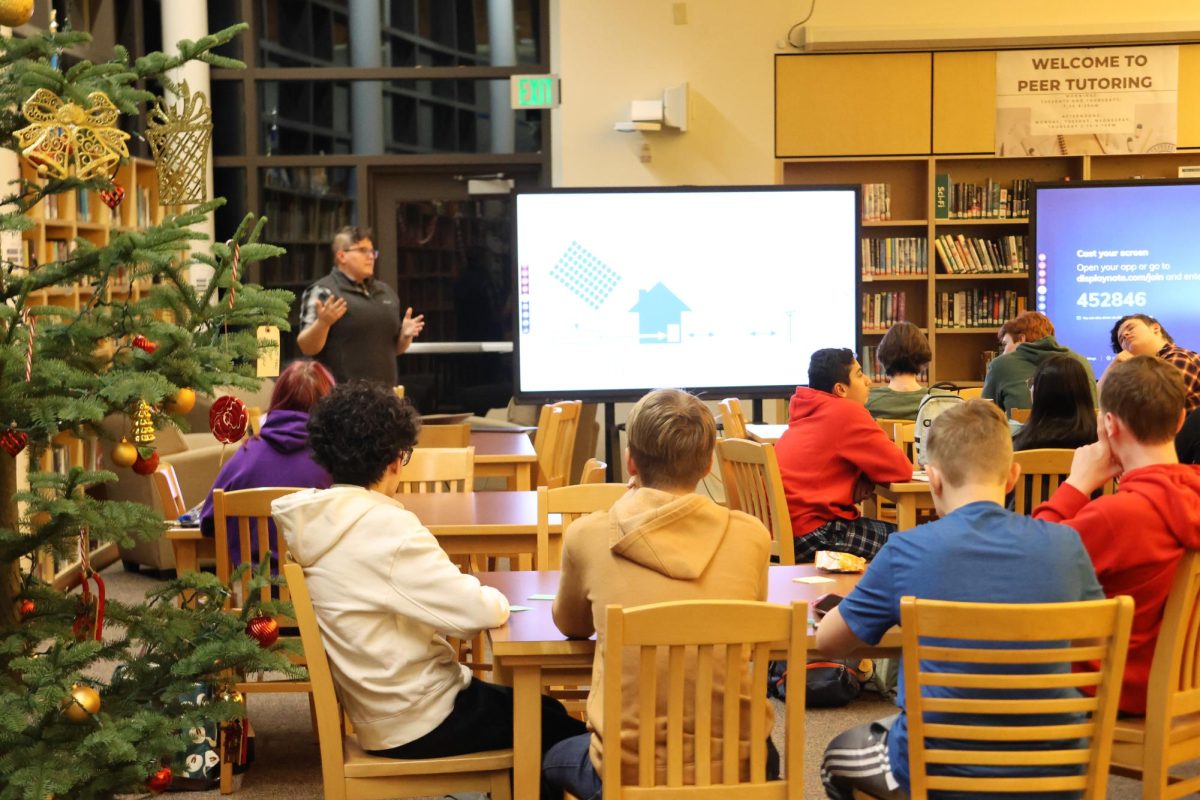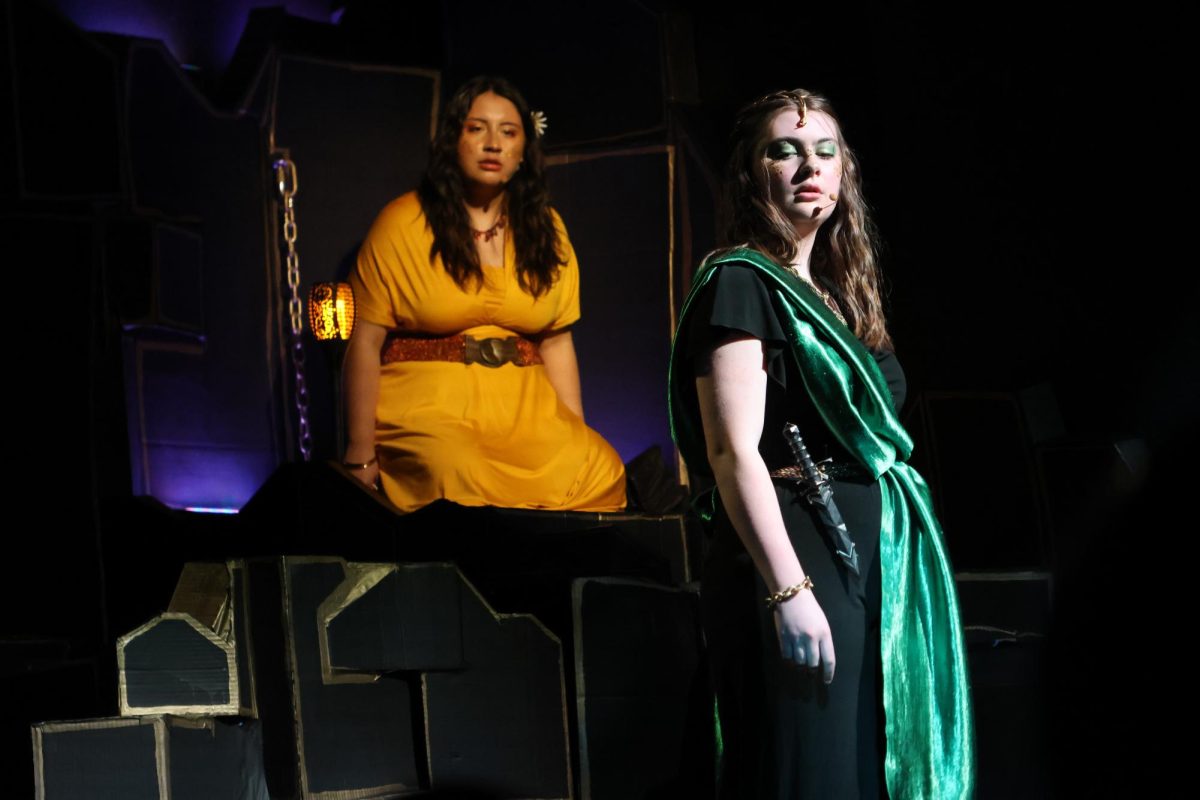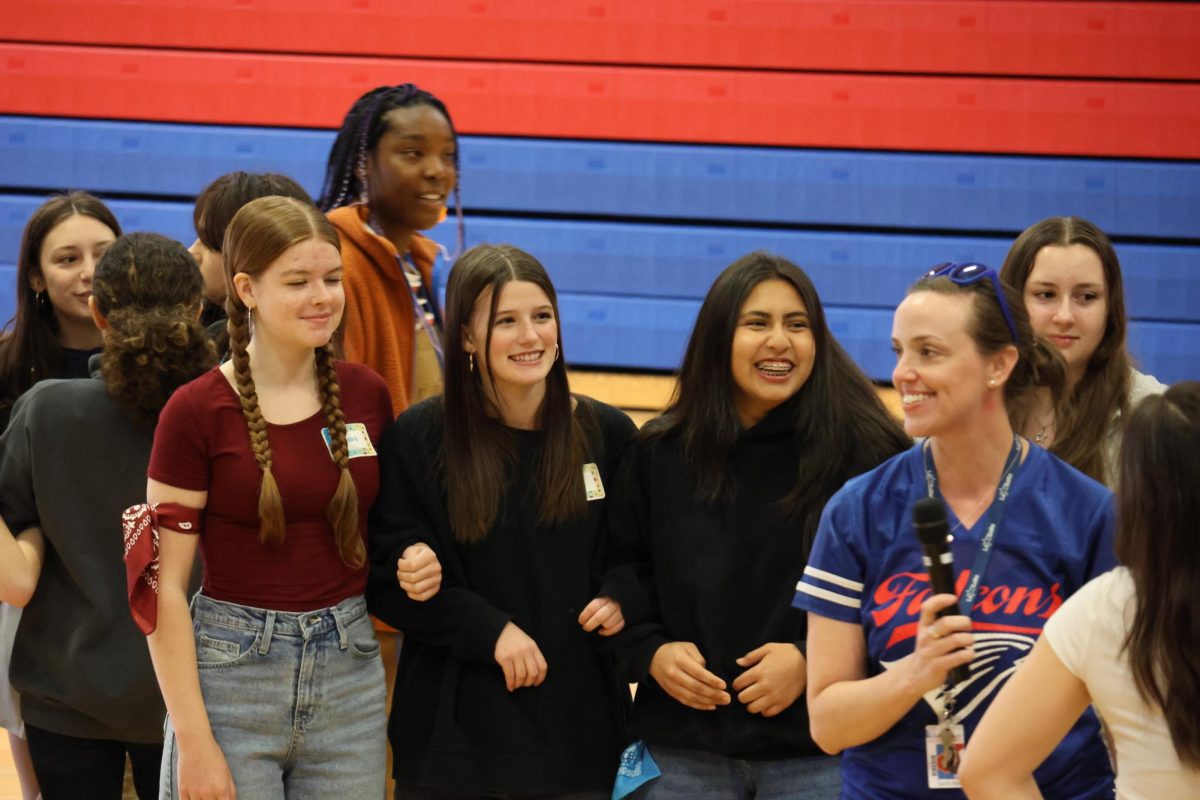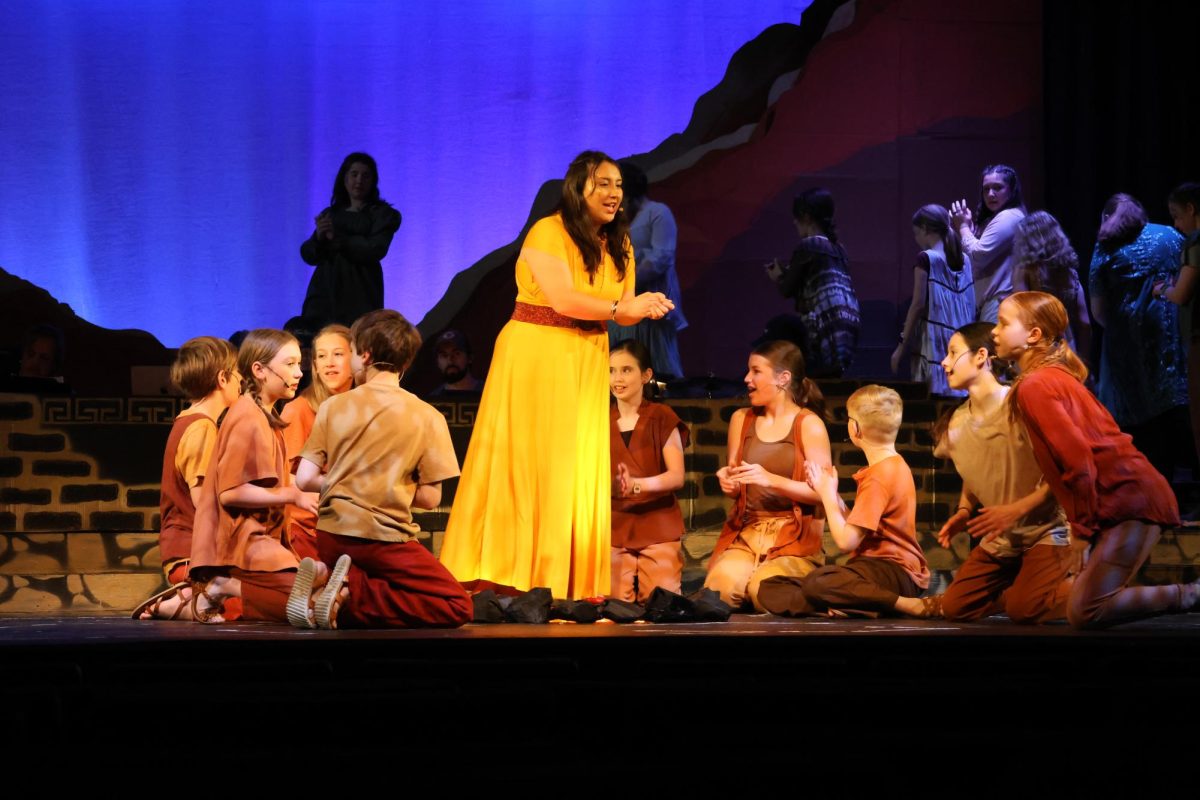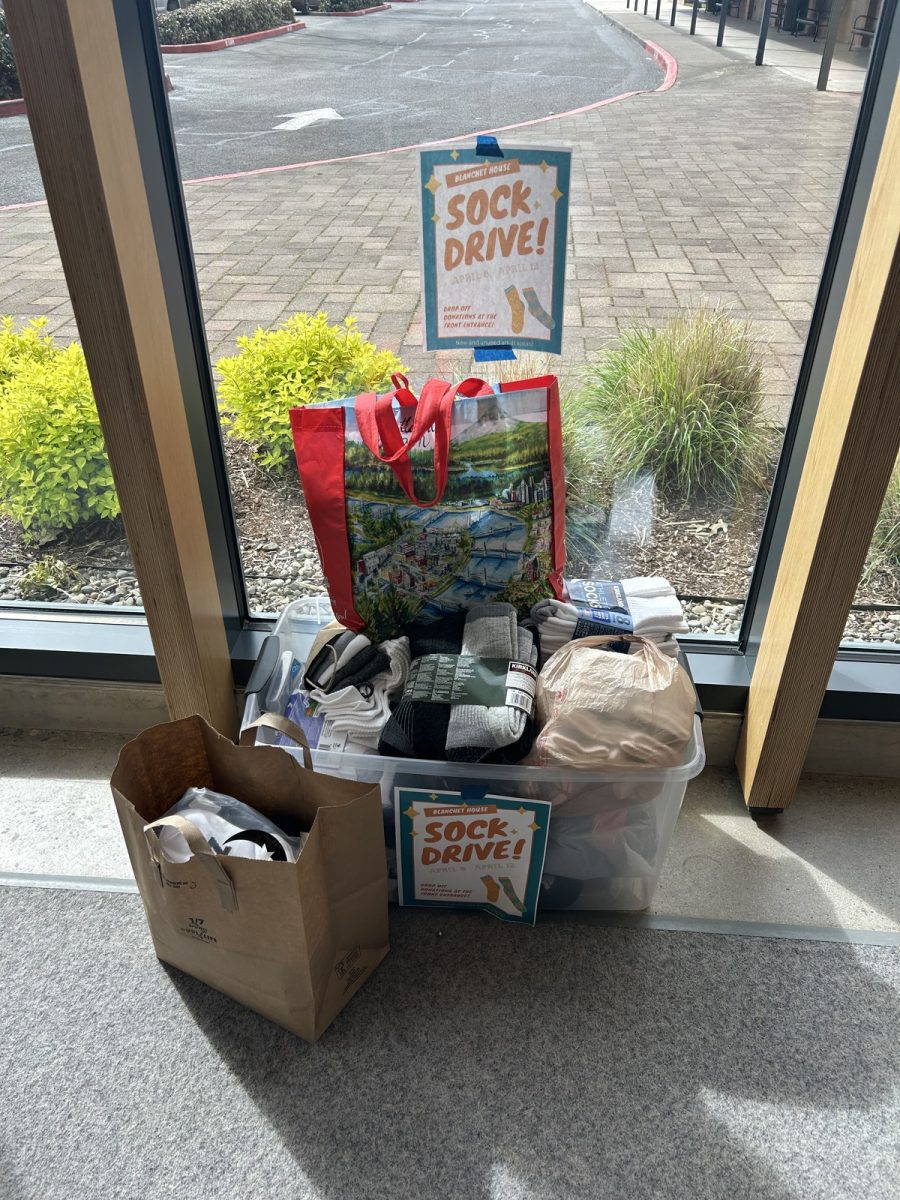Most of us are fairly familiar with solar panels: electricity generating devices whose energy can be used to power anything from a house to an entire island. Solar engineering, a career which involves designing, implementing, and maintaining ways to utilize solar power, focuses primarily on the use of solar panels as a way to generate renewable energy.
With the demand for renewable energy increasing worldwide, the need for the next generation of scientists, technicians, mathematicians, and engineers to create a sustainable future has become even more apparent. And for that to happen, current high school students — such as those at La Salle — need to be aware of the growing opportunities in the clean energy field, and what it takes to pursue those careers. This is what Jeni Hall came to La Salle to talk about on Tuesday, Dec. 12.
Hall, solar project manager for the nonprofit Energy Trust of Oregon, which helps communities create sustainable futures through renewable energy, began the presentation by admitting that her current career is “not where [she] thought [she] would be.”
Hall went to college for aerospace engineering, and after getting her bachelor’s and master’s degrees, she ended up working for Sikorsky Aircraft, focusing on computer controls and structural engineering. From there, Hall made the transition to renewable energy, becoming her own business owner before working for Energy Trust of Oregon.
“The job I’m doing right now, I’m kind of inventing as I go,” Hall said.
Aerospace and solar engineering — the latter of which is what Hall now spends her time on, working on projects such as the Treasury Building in Salem and the Solarize Columbia Residential Photovoltaic program — might not seem similar, but in reality, the two concepts have more in common than one would expect. For Hall, aerospace engineering and clean energy connected through wind turbines. “They’re just funny shaped wings,” Hall said, explaining that she was able to apply previous knowledge from working with helicopters at Sikorsky to designing wind turbines in the Columbia River Gorge. From there, she became interested in more forms of renewable energy, eventually ending up in solar.
Hall’s presentation, which took place from 5 to 6 p.m. in La Salle’s Hamersly Library, mainly discussed the importance of solar engineering, along with clean energy in general, and how students can pursue STEM fields through discussing her own experiences. Ms. Carie Coleman, La Salle’s Director of STEM and Innovation and Design teacher, planned the event, explaining that she wants “students to have the opportunity to learn about potential opportunities for careers in this field.”
“A lot of time we don’t know what a job is,” Ms. Coleman said. This presentation was “an easy hour to explore an option and hear from someone who’s an expert in that area.”
Through hearing Hall’s presentation and Q & A Ms. Coleman hopes that students will be exposed to more STEM careers, particularly in the field of engineering. Often, she said, people don’t know about the careers that exist beyond electrical and mechanical engineering — and, as STEM Director, she said that it’s her job to promote opportunities for students in those fields. Introducing students to potential opportunities in specific STEM careers through presentations like Hall’s gives them a chance to discover what interests them, but also what doesn’t.
“Even if [students] go to it and realize they don’t want to be an engineer, they still have the opportunity to learn, like ‘oh, I don’t want to do that,’” Ms. Coleman said. “And that to me is just as important to find out as something that you do want to [do].”
Through outreach in a variety of forms, Ms. Coleman invited anyone interested in attending to come: students, parents, and teachers. Approximately 25 people showed up, and even though the presentation coincided with an academically taxing week before winter break, freshman Sammy Uicker said that it was informative, interesting, and worth the time. Both Uicker and junior Phoebe Sandholm expressed interest in engineering or aerospace, and said that while their plan to pursue STEM careers was what motivated them to go, they both learned a lot more than they had initially expected and left with a desire to explore those fields further.
“There’s so many different routes you can take and still be involved in engineering,” Sandholm said. “[That] makes sense, but it was just something I hadn’t thought about before.”
Hall’s advice to students interested in STEM is to find people who can help them navigate the myriad of career paths that exist, whether it is solar engineering or volcanology. Hall said that the most important thing is “speaking up and expressing your interest” so that people like her, who are experts in their fields, can explain both what their careers are like and how they got there. According to Hall, STEM isn’t full of traditional career paths. Opportunities and jobs that exist now, such as hers, didn’t exist ten or even three years ago, so Hall said that “you can’t necessarily just learn about it from a book.”
“Clean energy is not something that’s in the future,” Hall said. “It’s right now.”
While presentations like this have been held somewhat infrequently in the past, Ms. Coleman wants to shoot for two per semester moving forward. After winter break, ambassadors from Oregon State University’s College of Engineering are coming to speak about the engineering programs offered there. Ms. Coleman hopes to have guest speakers present about subjects beyond engineering, such as pharmacy, medicine, or research, and Sandholm said that she would like to see a neuroscience presentation, or a speaker who has a degree in mathematics.
“It’s worth it to take a look at different fields, even if you’re not interested in them,” Sandholm said. “You never know what you’re interested in until you try it.”



